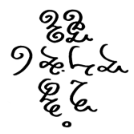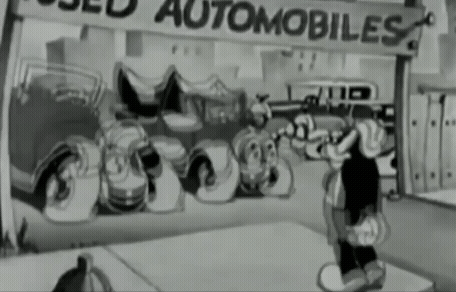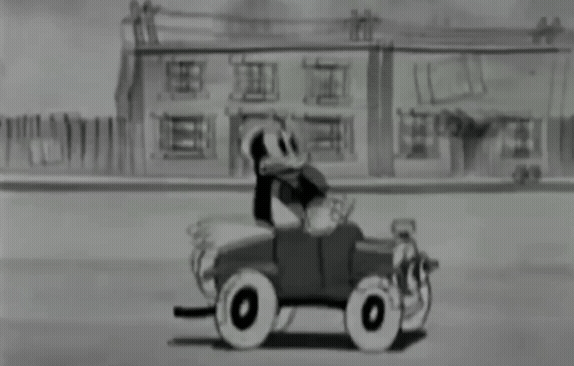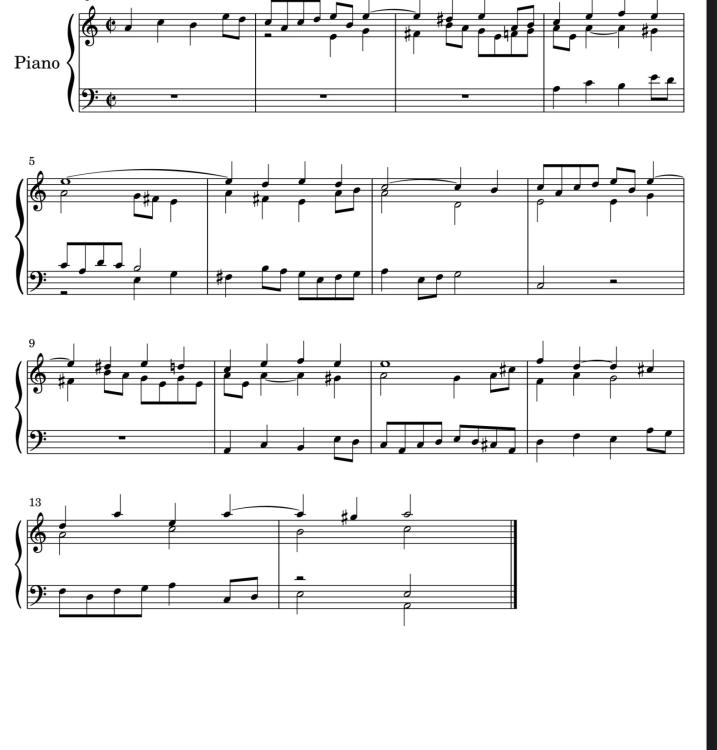All Activity
- Past hour
-
你好 @张文灏! Welcome to the forum! The tango style is well maintained in the music! Is the vocal by yourself? Thx for joining and sharing! Henry
-
Hi @user011235! I like this rag haha, really fits well to the style and the animation. If I don’t remember wrongly, our boss @chopin has composed rags before. Thx for sharing! Henry
-

Topple the dynasty
Henry Ng Tsz Kiu replied to Fruit hunter's topic in Orchestral and Large Ensemble
Hi @Fruit hunter! Like @MJFOBOE Mark said I love your percussion very much too! I love your use of the bass drums and chime bells and bells, and they combine really well with the brass to form a grand atmosphere for music related to a dynasty. The combination of piccolo and the field drum in p.10 sounds really festive and I absolutely love the drum there! The texture around minute 6 with pizzicato sounds funny to me. I love the forte muted brass in 8:30, it really brings excitement with the underlying marching rhythm. Like the siren in 10:30 too. Thx for sharing! Henry - Today
-
by playing your works For one you are demonstrating reality, not just abstract concepts there may also be some performer/instrument/acusotics specific aspects only you can do of course being an amateur without the finest techniques I struggle to perform my own works even with more time in practice something I definitely lack irl i might also face musicality or intepretative blind spots so its always helpful to have someone else try to (at least how to) play your work
-
Henry Ng Tsz Kiu started following The Old Automobile Rag
-
PeterthePapercomPoser started following The Old Automobile Rag
-
user011235 started following The Old Automobile Rag
-
I went through a ragtime phase in high school, and this one I think is the most solid out of the rags i composed. I picture an old squash and stretch car from those classic cartoons, bouncing along at a moderate pace
- 1 reply
-
- 1
-

- Yesterday
-
PeterthePapercomPoser started following Ghost Party
-
Henry Ng Tsz Kiu started following Ghost Party
-
vijayjainusa joined the community
-
张文灏 started following Ghost Party
-
Hello everyone, I'm Wenhao Zhang, a singer-songwriter from China. Here I'd like to share with you a song I composed, titled "Ghost Party", which features a tango style and incorporates elements of musical theatre. I hope you enjoy listening to it. 大家好,我是来自中国的创作歌手张文灏。在这里和大家分享一首我创作的探戈风格、融合音乐剧元素的歌曲《幽灵派对》,欢迎大家收听。
-
张文灏 joined the community
-
Chemathmusician0510 started following General rules
-
For Cello (Solo): Low position repeated four-note scale patterns are a pain on cello due to the fingering system. (1812 overture near the end) For the same reason, chromatic passages are somewhat easier on cello than violins and violas. However as you go higher up, Scales and then ultimately arpeggios get easier to play as a result of finger distance change. Double stops up to a octave are usable throughout the range. Tenths start about from F# (minor) or G (major) (on the C string) as the lowest notes. Repeated thirds involve a lot of shifting. best to do it in higher position for fast passages. However, this is still quite difficult but a competent cellist should be able to play with some practice. sustained triple stops require that some the upper notes be about an octave higher than the open string it's played on. This will still be played forte though. Fast multiple stops can get a bit clunky and more percussive due to the bow pressure. Fast alterations between natural harmonic and open string in one bow are impossible unless the left hand plucks after playing the harmonic. If the bowing is separated, This still could be a problem in low dynamics. Forced harmonics are much more agile than either natural or artificial harmonics as they are fingered like normal notes. This still can not be played too forte though. Don't overuse the A string for solos. For some reason a lot of composers love it, but it just sounds to harsh especially in lower positions. Dropping a melody down an octave is an option thus. High position fifths are harder than sixths, thirds, octave, and tenths unless there is a chance to use the thumb (Shostakovich Cello concerto no. 1 first mvt. near the beginning)
-
Henry Ng Tsz Kiu started following Fugue in A minor(From the Langloz Manuscript) and Discussions in Secret
- Last week
-
JJ Michaels joined the community
-
Progress update for today: finished the quiet part after the part from the first post. And yes, you might've figured it out, I quoted @Henry Ng Tsz Kiu's Image in G major (2nd theme). Like, I put his theme on my sketch, pair it with the main theme, and it is just a good counter point for it. Furthermore, I think it fits well with the rest of the piece cus both the main theme and his theme use a lot of pentatonic. Anyway, really happy with how productive I am with scoring today, can't wait to finish it
-
Fugue in A minor(From the Langloz Manuscript)
Fermata replied to Sonata_5's topic in Piano Music, Solo Keyboard
There's improvement, but some dissonances are still not well resolved. See below for a few ideas—though you may want to reduce movement in quavers to better align with the keyboard style. EDIT: added a 2nd version -
Hello all! I'm back with another piece. I began working on this last week and have titled it "Discussions in Secret". As I wrote this piece, I was scoring (in my mind) a scene of two individuals discussing important or confidential information, tucked away from a crowd in a darkened corner...doing their best to stay out of the light and keep their information and identities secret to those around them. For this I challenged myself to keep the strip the instruments back to only the necessities. Almost entirely strings with some underlying synth elements (for atmosphere), as well a cimbalom, celeste, and tubular bells towards the end of the piece. I wanted the piece to keep an uneasy and mysterious feeling throughout without delving into dark, villain-esque territory. More desperation and secrets, less action. Hope you enjoy the listen and am looking forward to the feedback!
-
- 1
-

-

Andor (Main Titles) - Arrangement by Layne Lee
Layne replied to Layne's topic in Incidental Music and Soundtracks
Thank you so much Harry! Glad you enjoyed the listen. Even though you're unfamiliar with the source material, I highly recommend listening to the score (especially season one. It's very unique and a great listen. -
Fugue in A minor(From the Langloz Manuscript)
Sonata_5 replied to Sonata_5's topic in Piano Music, Solo Keyboard
-

Fughetta in C minor for String Quartet.
Henry Ng Tsz Kiu replied to Fugax Contrapunctus's topic in Chamber Music
Hey Pabio @Fugax Contrapunctus, The fugue subject immediately reminds me the last movement of Brahms's Piano Quintet, b.94 But of course you use the motive in your own way and much more contrapuntally. For me maybe I will use much more of the motive in b.1 in the episodes since it's the most significant figure of the whole subject. Nonetheless that's just me, and thx for sharing this great expression! Henry -

Capriccio for Violin and Piano in A Major
Henry Ng Tsz Kiu replied to user011235's topic in Chamber Music
Yeah those spots indeed sound giocoso, and maybe the very short duration of the high note pizzicato fits the description well! -
@Henry Ng Tsz Kiu Thanks Henry for the listen and the review! Yeah it all kind of flowed out of me in those 4 days haha. I think you're absolutely right about the slurs, in fact i could go through and add more specific articulations and directions in general. Do you think the high pizz. would come across better if i added a direction like giocoso? Those measures and 132-139 are meant to be like a silly playful vibe.
-
Thanks so much, Henry! I know that parallel 5ths and octaves aren't harmonically exciting when one is looking for independence of line, but that wasn't what I wanted for this piece. I wanted a sense of rain-washed green hills with clear air above, dotted with sheep all saying their prayers to the land together like little nuns. So homophony made sense, and open harmonies, with the sopranos floating above like birds taking in the scene below. And since that could be a bit boring, particularly given the repetition in the text, some changes in rhythmic emphasis seemed wise. The tricky bit is remembering to read ahead so you actually do them, but thankfully, the conductor doesn't have too much to do, so they can free an arm to dictate triplets and other patterns if people are watching. Thank you for your thoughts and I'm glad you enjoyed it! -Maggie
-
Alireza Dadras joined the community
-

Fughetta in C minor for String Quartet.
Fugax Contrapunctus replied to Fugax Contrapunctus's topic in Chamber Music
Unfortunately, given how short this piece already is, such textural density isn't just merely accidental, but a properly deliberate design choice. Should the composition in question reach up to more than 3 minutes or so, as is the case for other compositions of such duration among my works, perhaps I would consider temporarily suppressing one or more of the given voices. Otherwise, unprompted rests in the middle are out of the question for me. Fixed, and thank you for your kind words, as well as your constructive feedback. -
I've decided to tackle orchestration again, and this time, I've paired it with vocal. I've actually got into this "game" again recently, so that's why I chose to orchestrate its only song with my own preferences. The main theme may sound like it comes from an anime cus it's from a fcked up anime dating simulator lmao The instrumentation is fairly standard: 3(III=pic).2.3(III=bc).2 - 3.2.0.0 - timpani.percussion(glock, xylo, sus.cymb, cymb, trgl) - alto - strings The audio has a lil bit more than the score. It's a transition to a more quiet section, you may recognize a theme that I've quoted from someone from this forum 👀 Anyways, lemme know what you think about it, I'll probably upload more progress down the line enjoy
-
Hey @BrokenHarpsichord, I have checked out your Duet for oboe d'amore and bassoon no. 7, you may take care of the following points: Counterpoint: Since this one is in two part counterpoint, beware of the parallel octaves in b.2 Instrumentation: High register bassoon will be hard to play the mf at the beginning or f at the end since double reed instruments play softly on high register and loudly on low register. Nice try, thx for sharing! Henry
-
The name of the program in question is Cantāmus (https://cantamus.app/), a music rendering website originally intended for vocal rehearsals, but which serves my purpose of setting my vocal works with actually "sung" lyrics well enough, so to speak. Better yet, it doesn't even work with MIDI, as it reads the score directly once uploaded to the site as a .musicxml file (which I find rather optimal, given my own bad experiences and failures in trying to get MIDI exports of my compositions to be relatively decent). I also often tend to overlay the final recording of the Cantāmus rendering with the audio file for my composition as sung by the MuseScore 4 MuseSounds Choir soundbank afterwards using Audacity, so as to grant the otherwise crisp and dry timbre of the Cantāmus voices a softer, more mellow sound and a greater sense of reverb.
-
A kind of fugue, composed yesterday by me:

.thumb.jpg.e5f26b712b4f9622f521b10d8a53c6d6.jpg)




